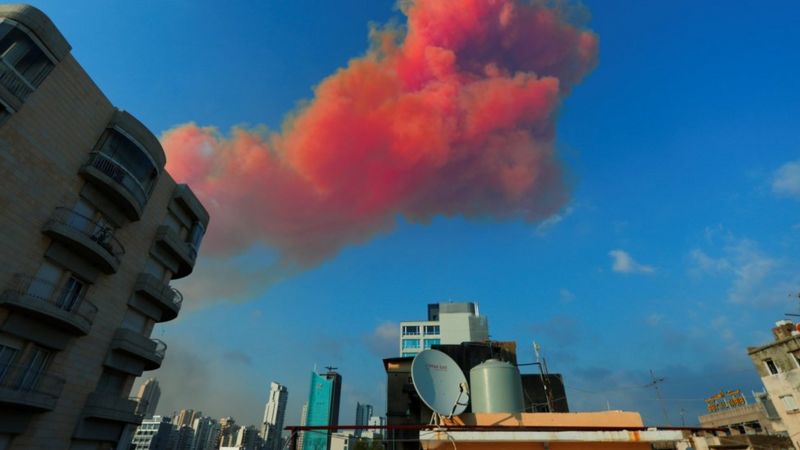Nearly 3,000 tonnes of ammonium nitrate – taken from a ship off the coast of Beirut six years ago and then stored in a warehouse – has been blamed for the explosion that ripped through the port area of the Lebanese capital on Tuesday.
But what is ammonium nitrate and why can it be so dangerous?
What is ammonium nitrate?
Ammonium nitrate is a crystal-like white solid which is made in large industrial quantities. Its biggest use is as a source of nitrogen for fertiliser, but it is also used to create explosions for mining.
“You won’t just find ammonium nitrate in the ground,” explains Andrea Sella, professor of chemistry at University College London. That’s because it’s synthetic, made by reacting ammonia with nitric acid, he says.
Ammonium nitrate is made all over the world and is relatively cheap to buy.
But storing it can be a problem, and it has been associated with serious industrial accidents in the past.
How dangerous is ammonium nitrate?
On its own, ammonium nitrate is relatively safe to handle, says Prof Sella.
However, if you have a large amount of material lying around for a long time it begins to decay.
“The real problem is that over time it will absorb little bits of moisture and it eventually turns into an enormous rock,” he says. This makes it more dangerous because if a fire reaches it, the chemical reaction will be much more intense.
Frantic search for survivors of deadly explosion
Dozens dead and thousands injured, health minister says
What caused the mushroom cloud?
Videos from Beirut showed smoke billowing from a fire, and then a mushroom cloud following the blast.
“You have a supersonic shockwave that is travelling through the air, and you can see that in the white spherical cloud which travels out from the centre, expanding upwards,” says Prof Sella.
The shockwave is produced from compressed air, he explains. “The air expands rapidly and cools suddenly and the water condenses, which causes the cloud,” he adds.

